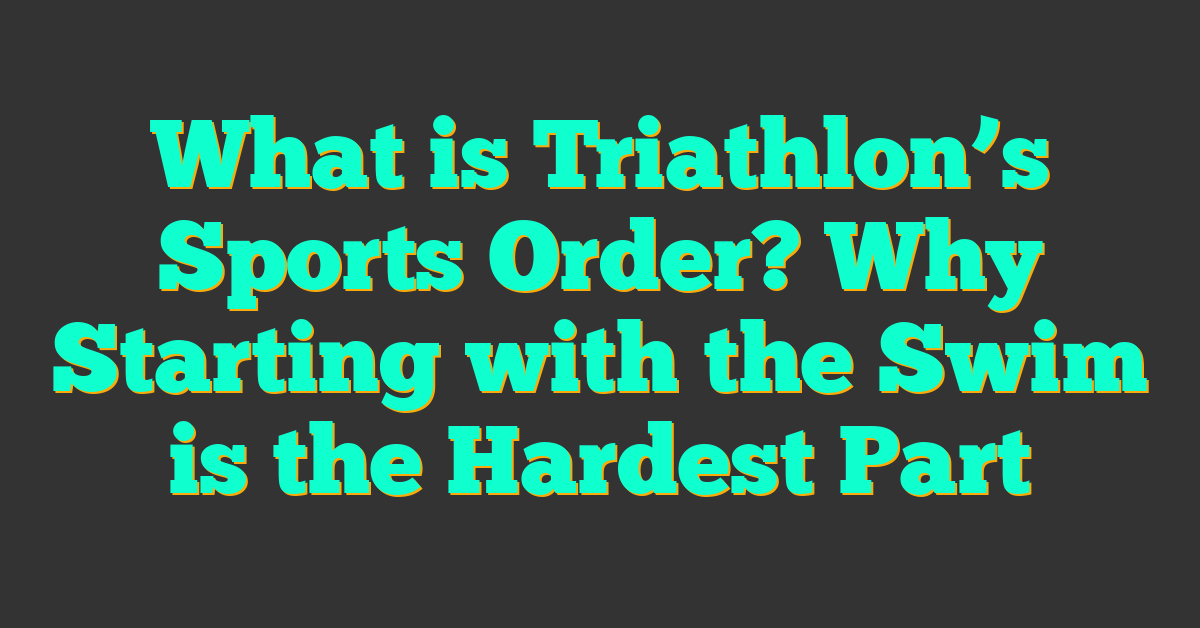Swimming is a great way to stay in shape and maintain a healthy lifestyle. It is a low-impact exercise that works out almost every muscle in the body, making it an excellent cardiovascular workout. However, one thing that many people notice about swimmers is their seemingly insatiable appetite. So, why do swimmers eat so much?

The answer lies in the fact that swimming is an incredibly energy-intensive activity. According to a recent study, swimmers can burn up to 600 calories in just 30 minutes of swimming. This means that swimmers need to consume a significant amount of calories to keep up with their energy needs. Additionally, swimming can increase your metabolism, causing you to burn more calories even when you’re not swimming. This increased metabolism means that swimmers need to consume even more calories to maintain their weight.
So, what does this mean for swimmers when it comes to their diet and eating habits? In this article, we will explore the swimmer’s diet and nutritional needs, energy expenditure in swimming, meal planning and eating habits, the physical impact of swimming, swimming and lifestyle, and frequently asked questions. By the end of this article, you will have a better understanding of why swimmers eat so much and what you can do to maintain a healthy diet while swimming.
Key Takeaways
- Swimming is an energy-intensive activity that requires swimmers to consume a significant amount of calories to keep up with their energy needs.
- Swimmers need to pay attention to their diet and nutritional needs to maintain their weight and energy levels.
- Meal planning and eating habits are important for swimmers to ensure they are getting the proper nutrients and calories to fuel their swimming workouts.
The Swimmer’s Diet and Nutritional Needs
https://www.youtube.com/watch?v=KAK0O2yMmM0&embed=true

If you are a swimmer, you know that swimming requires a lot of energy. To fuel your body, you need to eat a balanced diet that meets your nutritional needs. In this section, we will discuss the macronutrients and micronutrients that are essential for swimmers, as well as the importance of hydration.
Understanding Macronutrients
Macronutrients are the nutrients that provide your body with energy. They include carbohydrates, proteins, and fats. Carbohydrates are the primary source of energy for swimmers. They are broken down into glucose, which is used by your muscles for energy. You should aim to get about 45-65% of your daily calories from carbohydrates.
Proteins are essential for muscle repair and growth. Swimmers need more protein than sedentary individuals to repair the damage caused by swimming. You should aim to get about 10-35% of your daily calories from protein.
Healthy fats are also essential for swimmers. They provide energy and help your body absorb vitamins. You should aim to get about 20-35% of your daily calories from healthy fats.
The Role of Micronutrients
Micronutrients are the nutrients that your body needs in smaller amounts. They include vitamins and minerals. Vitamins are essential for various bodily functions, such as immune system function, energy production, and bone health. Minerals are essential for strong bones, healthy blood pressure, and muscle function.
Swimmers need to ensure that they are getting enough micronutrients in their diet. This can be achieved by eating a variety of fruits, vegetables, whole grains, and lean proteins.
Hydration and Its Importance
Hydration is essential for swimmers. When you swim, you lose water through sweat and respiration. It is important to replace this lost water to avoid dehydration. Dehydration can lead to fatigue, cramps, and decreased performance.
It is recommended that swimmers drink water before, during, and after swimming. You should aim to drink at least 8-10 glasses of water per day.
In summary, swimmers need to eat a balanced diet that meets their nutritional needs. This includes getting enough macronutrients and micronutrients, as well as staying hydrated. By following these guidelines, you can fuel your body for optimal performance in the pool.
Energy Expenditure in Swimming
https://www.youtube.com/watch?v=AwIkfDVr45I&embed=true
Swimming is a physically demanding sport that requires a lot of energy. As a result, swimmers tend to eat more food than non-swimmers to meet their caloric needs. In this section, we will explore the energy expenditure involved in swimming and how it affects a swimmer’s diet.
Caloric Demands of Training
Swimming is a full-body workout that engages multiple muscle groups. The caloric demands of swimming vary depending on factors such as workout intensity, distance, and stroke type. On average, swimmers burn around 250 calories for every 30 minutes of swimming [1]. However, this number can vary significantly depending on the swimmer’s weight, overall athletic ability, and the type of swim stroke they are doing.
Metabolism and Swimming
Swimming can boost your metabolism, which is the process of converting food into energy. With increased metabolism, you tend to feel hungrier because your body is demanding more nutrients to keep up with your energy needs [1]. Swimming regularly can also help increase your muscle mass, which can further boost your metabolism and help you burn more calories even when you are not swimming.
Post-Exercise Hunger and Recovery
After a swim workout, your body may experience post-exercise hunger, which is the feeling of increased appetite after physical activity. This is due to a combination of factors, including the energy expenditure involved in swimming and the hormonal fluctuations that occur during exercise [3]. To aid in recovery and replenish energy stores, it is important to consume a balanced meal or snack within 30 minutes of finishing your swim workout. This can help reduce post-swim hunger and provide your body with the fuel it needs to recover and rebuild muscle.
In summary, swimming is a physically demanding sport that requires a lot of energy. Swimmers tend to eat more food than non-swimmers to meet their caloric needs. Swimming can boost your metabolism, increase your muscle mass, and lead to post-exercise hunger. To aid in recovery and replenish energy stores, it is important to consume a balanced meal or snack within 30 minutes of finishing your swim workout.
[1] OpenWaterHQ
[3] MySwimPro
Meal Planning and Eating Habits

« Why Do Runners Wear Necklaces? Should You Wear One Too?
Why Swimmers Have Broad Shoulders, Flabby Arms, and Big Thighs: Explained »
As a swimmer, it’s important to fuel your body with the right foods at the right time. Meal planning and eating habits can make a big difference in your performance in the pool. Here are some tips for pre-swim meals, post-swim nutrition, snacks, and meal timing.
Pre-Swim Meals
Before a swim, it’s important to eat a meal that will provide you with the energy you need to perform at your best. Aim for a meal that is high in carbohydrates and protein, but low in fat and fiber, which can slow down digestion and cause stomach discomfort. Good options include pasta with chicken, oatmeal with fruit, or eggs with whole grain toast.
Post-Swim Nutrition
After a swim, your body needs to replenish the energy it has lost and repair muscle tissue. Aim for a meal that is high in protein and carbohydrates, such as a chicken and vegetable stir-fry with brown rice or a turkey sandwich on whole grain bread. It’s also important to rehydrate with water or a sports drink.
Snacks and Meal Timing
In addition to meals, snacks can help provide the energy you need to power through a swim workout. Good options include fruit, nuts, and bars that are high in protein and carbohydrates. It’s also important to time your meals and snacks correctly. Eating a large meal right before a swim can cause stomach discomfort, so aim to eat a meal at least two hours before swimming. If you need a snack closer to your swim, choose something small and easy to digest, such as a banana or a granola bar.
Overall, meal planning and eating habits are important for swimmers to perform at their best. By choosing the right foods at the right time, you can fuel your body for success in the pool.
The Physical Impact of Swimming
https://www.youtube.com/watch?v=0pxrI2qUPVE&embed=true
Swimming is a full-body workout that engages many major muscle groups. It is an excellent form of exercise that helps you stay fit and healthy. Swimming regularly can help you maintain a healthy weight, improve your body composition, and build muscle. In this section, we will discuss the physical impact of swimming on your body.
Muscle Repair and Growth
Swimming is an excellent way to build and repair muscles. When you swim, you use many major muscle groups, including your arms, legs, back, and core. This helps to strengthen and tone your muscles. Swimming also helps to improve your muscle endurance, which is the ability of your muscles to work for an extended period without fatigue. This can help you perform better in other physical activities and sports.
Weight Management and Body Composition
Swimming can also help you manage your weight and improve your body composition. Swimming is a low-impact exercise that burns a lot of calories. According to MySwimPro, swimming can burn up to 500 calories per hour. This can help you lose weight and maintain a healthy weight. Swimming can also help you improve your body composition by increasing your muscle mass and reducing your body fat percentage.
Overall, swimming is an excellent form of physical activity that can help you stay fit and healthy. It can help you build and repair muscles, improve your muscle endurance, manage your weight, and improve your body composition. If you are looking for a low-impact exercise that engages many major muscle groups, swimming is an excellent choice.
Swimming and Lifestyle

Swimming is a demanding sport that requires dedication and commitment. It is not just about getting in the pool and swimming laps, but also about maintaining a healthy lifestyle. Here are some things to consider when it comes to balancing your swimming with your daily life.
Rest and Recovery Periods
Rest and recovery are essential for any athlete, and swimmers are no exception. Swimming sessions can be intense, and your body needs time to recover and repair. Without adequate rest, you risk overtraining, which can lead to injury and burnout. Make sure you get enough sleep and take rest days to allow your body to recover.
Balancing Diet with Other Activities
Swimming burns a lot of calories, and it can leave you feeling hungry. It is essential to balance your diet with other activities to ensure you are getting enough energy to fuel your workouts. Running, cycling, and resistance training are all excellent ways to supplement your swimming and keep your body in top condition.
It is also important to pay attention to your appetite and calorie burn. While swimming can burn a lot of calories, it is not a magic solution for weight loss. If you are trying to lose weight, you need to create a calorie deficit by consuming fewer calories than you burn. Swimming can help you achieve this, but you also need to pay attention to your diet.
Finally, make sure you are taking care of your body’s thermoregulation. Swimming in cold water can increase your appetite, so make sure you are staying warm and comfortable during your workouts. This will help you stay focused and energized throughout your swim sessions.
Frequently Asked Questions

What causes swimmers to feel hungrier than usual after a swim session?
Swimming is a physically demanding activity that can burn a significant amount of calories. As a result, swimmers often feel hungrier than usual after a swim session. The body needs to replenish the energy it has lost during the workout, which can lead to an increase in appetite.
How does swimming affect a person’s metabolism?
Swimming can increase a person’s metabolism, which is the rate at which their body burns calories. The body’s metabolism can increase for several hours after a swim session, which means that the body continues to burn calories even after the workout is over.
Is it common for swimmers to need more food than non-swimmers?
Yes, it is common for swimmers to need more food than non-swimmers. Swimming is a physically demanding activity that can burn a significant amount of calories. As a result, swimmers need to consume more food to maintain their energy levels and support their workout routine.
What is the recommended daily food intake for competitive swimmers?
There is no one-size-fits-all answer to this question, as the recommended daily food intake for competitive swimmers can vary depending on several factors, including age, gender, weight, and training intensity. However, it is generally recommended that swimmers consume a balanced diet that includes plenty of protein, carbohydrates, and healthy fats.
Why do swimmers often report a feeling of increased happiness after swimming?
Swimming can release endorphins, which are chemicals in the brain that can produce feelings of happiness and euphoria. Additionally, swimming is a low-impact activity that can be relaxing and meditative, which can also contribute to a feeling of increased happiness.
Can swimming regularly lead to a more relaxed state of mind?
Yes, swimming regularly can lead to a more relaxed state of mind. Swimming is a low-impact activity that can be meditative and relaxing, which can help reduce stress and promote a sense of calm and well-being. Additionally, swimming can be a social activity, which can also contribute to a more relaxed state of mind.










